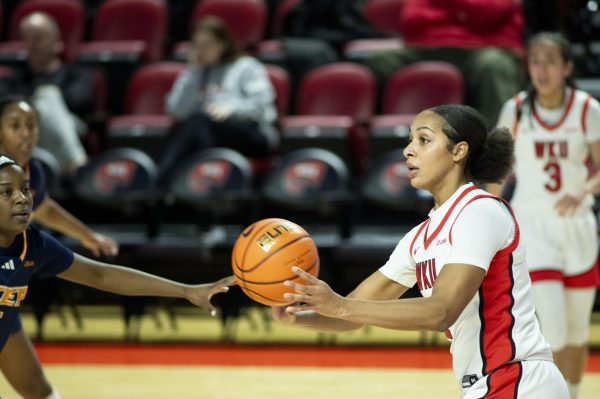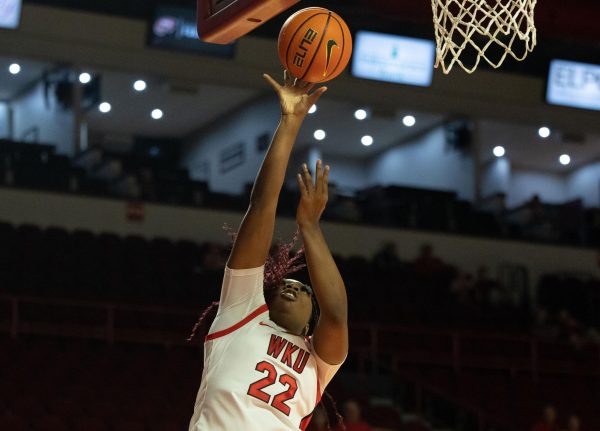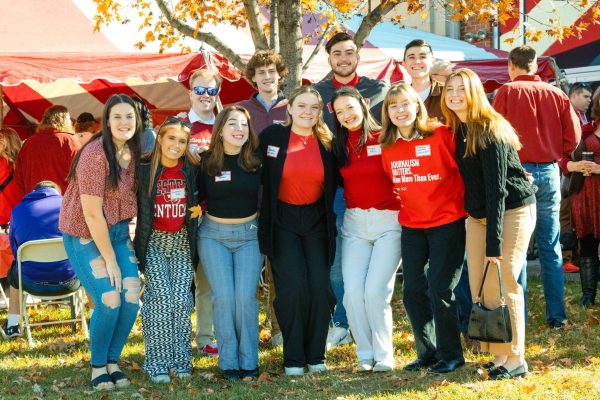COLUMN: The truth about study abroad
March 15, 2011
It’s been a little more than two months since I began my semester abroad at Harlaxton College in Grantham, England. In these two months, I’ve been to five new countries, mastered the art of packing lightly and amassed some serious study abroad know-how that I’m now going to share with you.
- Big cities aren’t scary.
One of the first trips Harlaxton students can take is a three-night weekend to London. Naturally, the school briefs us about safety – be wary of pick-pockets, look out for your friends and never go anywhere alone. These are all good pieces of advice. However, WKU gives a similar safety presentation before students depart, and friends and family always tell you to be safe. The constant warnings make you wonder what you’re getting yourself into, but don’t let it scare you away from exploring big cities. Just be smart and use common sense, and remember that not everyone is out to mug you.
- It’s not another America over here.
Europe is spotted with McDonald’s and Starbucks and many people speak English fluently, but it’s not America. A lot of students at Harlaxton end up in Europe expecting it to be a Westernized place almost identical to home. At Harlaxton, I spend most of my time with 177 other American students and several American professors. It can be easy to forget that it isn’t America, as funny as that may sound. But when I set foot outside the manor, I’m back in England where they speak the Queen’s English and drive on the other – not wrong – side of the road. There are customs and traditions that need to be respected when traveling.
- You’ll miss your cell phone…
But I promise you’ll survive without it. Unless you want an outrageous phone bill, let go of your texting-addiction. By putting your phone down, you connect with the people around you who are from other universities or other countries. No one at home will forget about you if you aren’t connected 24/7. Don’t waste all of your time abroad worrying about what’s going on at home.
- Going abroad doesn’t change you.
There’s a misconception that study abroad changes you, as if the moment you step foot onto foreign soil you are magically a new and improved person. False. The act of simply leaving America doesn’t change you one bit. With that being said, you may, and probably will, change while you’re abroad. You learn responsibility for yourself by planning trips and getting yourself there and back successfully. You learn to see things in a new light by having discussions with people from other cultures. Your experiences shape you and help you grow, but it takes some effort and a lot of stretching on your end.
- Not everyone hates Americans.
Not even the French hate us. What people do hate are rude Americans, but can you blame them? Respect and courtesy go a long way at home and abroad. Be aware of social customs and respect them. Throwing up “deuces” in America may be cool, but in England, it’s rude and won’t help you make any friends. In Irish pubs, don’t order an “Irish Car Bomb” to drink or you will more than likely get thrown out of the pub. It’s OK not to know the language of the place you’re visiting, but it’s always polite to learn a few phrases such as “yes,” “no,” “hello,” “thank you” and “Do you speak English?” Effort is always appreciated no matter how badly you slaughter the pronunciation.
- It’s expensive.
Sorry, but it’s just the truth, and it can’t be sugar-coated. Study abroad costs money, and lots of it. At Harlaxton, most students, myself included, use the three-day weekends to travel. While there are some flights for seven Euro and affordable hostels, it all adds up. Add in transportation, meals, souvenirs, entertainment and food, and it’s a pretty penny. Make sure you apply for scholarships, and be prepared to let go of any savings you’ve accumulated. The experiences are worth it.
























